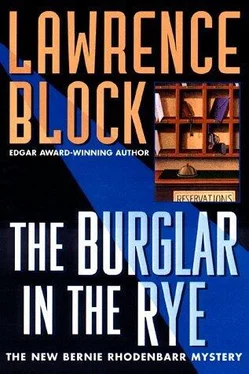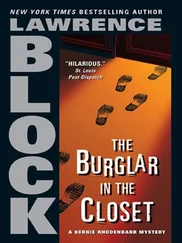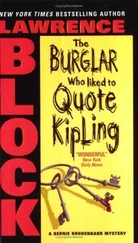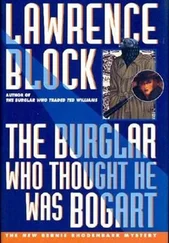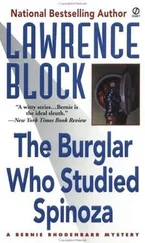“Why would she need me for that? You already said the woman was a professional thief.”
“She was a pro at liftin’ things,” Ray said, “but there’s nothin’ on her sheet shows she ever opened a door she didn’t have the key to.”
“You could get her in,” I said. “That had to be worth something to her. You could find a spare key to Landau’s room, or lend her your passkey. And you could tip her off as to when Landau was out of the hotel, so that she could get in and out without encountering the woman.”
“We had a case like that a couple of years back,” Ray said. “Big midtown hotel, an’ we started gettin’ reports of things missin’ from the rooms. No signs of forced entry, and it was almost always cash that was taken, an’ another thing-the victims were almost always Japanese businessmen.”
“At some midtown hotels,” Erica said, “that’s just about all you find.”
“This one got a lot of ’em,” Ray said, “but it was still pretty clear they were gettin’ targeted. An’ we looked into it, an’ we found it was worse than we figured, because a lot of the Japs was gettin’ knocked off an’ not botherin’ to report it. We knew it had to be somebody on the inside, an’ we narrowed it down to this one clerk, but we couldn’t make a case.”
“What happened?”
“You tell me. There was this one Jap we talked to. He got knocked off, an’ he knew some other people who got knocked off, an’ I guess maybe we let on which clerk we suspected.” He looked off into the distance, recalling the moment. “Funny guy,” he said. “Woulda made a hell of a poker player, ’cause he didn’t show nothin’ in his face. An’ when he stretched out his arms you could see he had tattoos on his wrists, an’ there was more tattooin’ that showed when he loosened his tie an’ unbuttoned his collar. An’ one more thing that was pretty funny. I mean, he was the kind of guy that if he was an American you’d figure him to have a pinkie ring. But there was no way in hell he could manage that.”
Somebody obligingly asked why.
“No place to put it,” Ray said. “Both his pinkies were gone. Funny, huh?”
“Yakuza,” I said. “Japanese gangsters. What happened to the clerk?”
“Well, must be he took the money an’ ran,” Ray said, “because he disappeared, an’ nobody ever saw him again.” He shrugged. “But just to be on the safe side, I stayed outta sushi bars for the next month or so.”
Carl had the look of someone who’d eaten a little too much Uzbek food. I guess he didn’t like stories where the hotel clerk disappeared.
“Maybe you’d worked a deal with her before,” I said to Carl. “For one reason or another she knew you weren’t an altar boy, and she made her pitch and you liked the sound of it. As a matter of fact, you had an idea of your own.”
“I don’t know what you’re talking about.”
“People say that all the time,” I said, “and it’s hardly ever true. You know exactly what I’m talking about. You told her about a woman living right here at the Paddington, a fellow member of the theatrical profession, who was wearing an extremely valuable necklace with matching earrings.”
Isis ’s jaw dropped, and she wheeled on Carl. “You son of a bitch,” she said. “I thought we were friends.”
“Don’t believe him, Isis.”
“Tell me why I should believe you instead, Carl.”
“For God’s sake, he’s a self-proclaimed burglar.”
“Actually,” Carolyn put in, “I think ‘admitted’ would be a better word for Bernie than ‘self-proclaimed.’ It’s not as though he goes around making proclamations. If anything, he’s a little ashamed of being a burglar.”
“Then why doesn’t he stop burgling?” Isis wanted to know.
“Just between us, I think it’s an addiction.”
“Has the man tried therapy? Or some sort of twelve-step program?”
“Nothing seems to work.”
“But I live in hope,” I said. “Carl, you and Isis were both actors. You were still jockeying a desk in a hotel lobby and she was getting work and wearing rubies. Maybe that gave you a resentment, or maybe you just saw some easy money. You gave your friend Karen a key and a room number and told her what to look for. And I guess she was a pro, all right, because she got out with the jewelry and otherwise left the place the way she’d found it.”
“I didn’t know anyone had been in there,” Isis said. “I always thought burglars made a mess.”
“Only the low-level ones,” I said.
“All I knew was that the necklace and earrings were gone. I looked for them and they were gone. I thought I’d misplaced them, and then I started thinking the, uh, friend who gave them to me had taken them back. And finally I found out that you were a burglar, and I decided you must have taken them.”
“Well, I did,” I said, “but Kassenmeier took them first. She stuffed them in the back of her underwear drawer.” I shook my head. “The cobbler’s children go barefoot, all right. A pro like Kassenmeier goes and hides the rubies in the first place a burglar would look. I guess she was in a hurry to get back to work on the job that brought her here in the first place, the Fairborn-Landau letters.”
I drew a breath. “Now here’s where the timing gets a little tricky,” I said. “The day of Landau’s murder was the same day I first came to the Paddington. I checked in around lunchtime, collected my bear, and went to my room.”
“You took a bear?” Isis said. “You came here to commit burglary and you wanted a bear in your room?”
“I don’t see what one thing has to do with the other,” I told her. “It’s a cute bear. Point is, while I was checking in I picked up an envelope from the floor. It was there to be picked up because I had just that minute dropped it. It had Anthea Landau’s name on it, and it was my way of finding out which room she was in. All I had to do was watch where Carl put it.”
“I didn’t put it anywhere,” Carl said. “I left it on the desk.”
“For the moment,” I said. “But by the time I’d put my things away and went back downstairs, you’d tucked it in Landau’s pigeonhole.”
“How could you tell?” Lester Eddington asked. “There must have been a dozen envelopes in as many pigeonholes.”
“This one was purple.”
His eyes lit up at the news, as did Hilliard Moffett’s. “Like every letter Gulliver Fairborn ever wrote,” Moffett said.
“I wanted something distinctive,” I said, “so I’d be able to spot it. And I had purple on the brain because I knew it was Fairborn ’s favorite color for correspondence. So I bought some purple paper and envelopes at a stationery store.” I drew a folded sheet from my breast pocket, waved it around. “Like this,” I said, and put it back. “I put a blank sheet in an envelope and left it at the desk, and it was in Anthea Landau’s pigeonhole when I left my key on the way out. And when I picked up my key that evening, it was gone.”
“She picked up her mail.”
“That’s what I assumed. But Anthea Landau had become increasingly reclusive in recent years. She rarely left the hotel, and didn’t often leave her suite of rooms.”
“I had to go to her room to examine the letters she was going to consign to us,” Victor Harkness put in. “‘You’ll have to come to the hotel,’ she said, arranging to meet me in the lobby. When I called from the lobby she said, ‘You’ll have to come upstairs.’”
“So I hardly think she would come downstairs for her mail,” I said. “I think she would have it brought up to her.”
Everyone looked at Carl. “So?” he demanded. “What does that have to do with anything? When I was on my break I took her mail up and slid it under her door. There are a few guests who get that service. Miss Landau was one of them.”
Читать дальше
